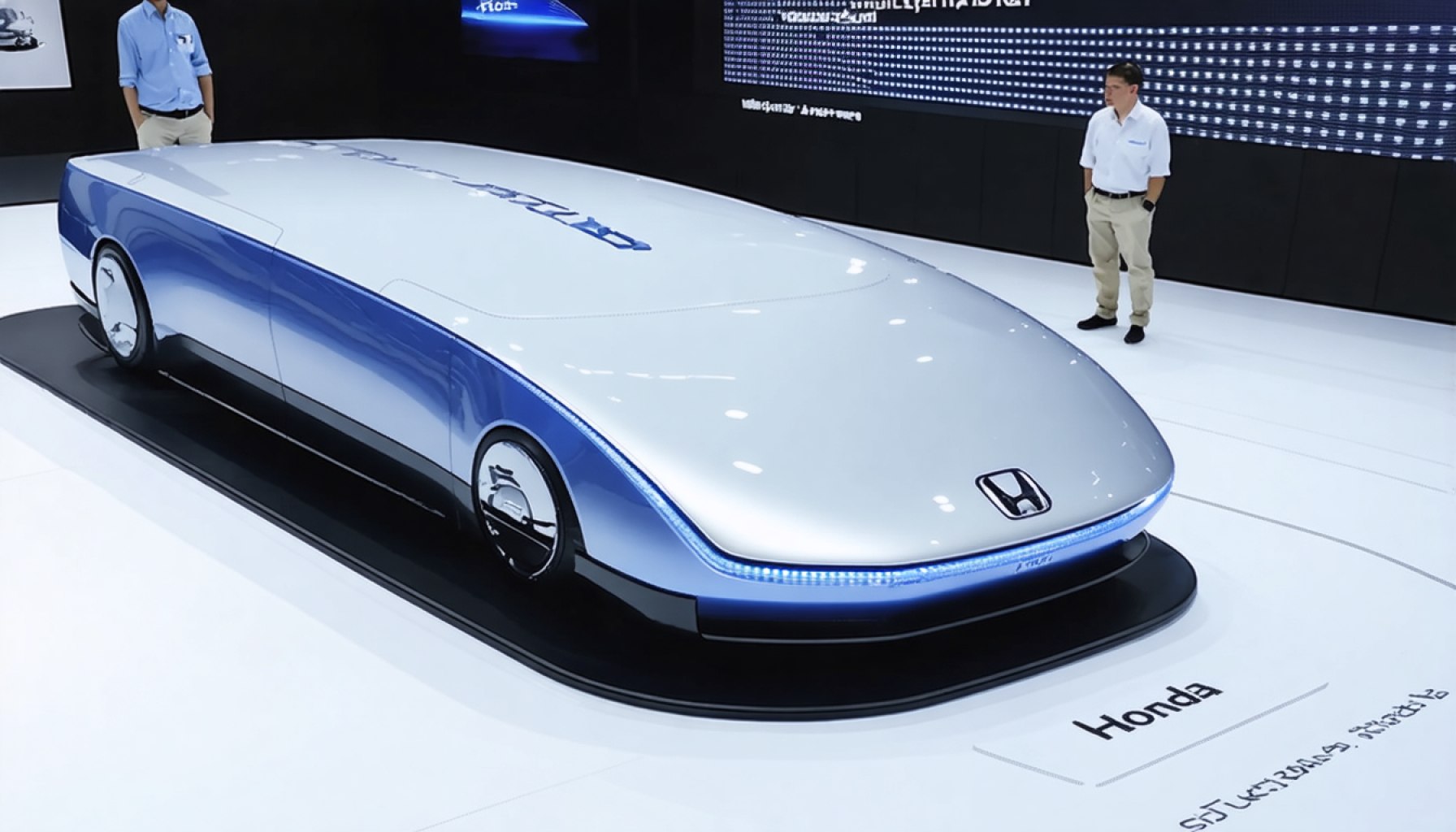- Honda has introduced a transformative fuel cell module, enhancing hydrogen power potential and promoting clean energy.
- The module features a 50% reduction in production costs and doubles longevity, offering durability and reduced maintenance.
- With a weight of 550 pounds and significant flexibility, the module can be integrated into vehicles and stationary power solutions.
- It boasts a volumetric power density three times greater than its predecessor, facilitating diverse and sustainable applications.
- The fuel cell operates efficiently across extreme temperatures and altitudes, performing optimally from -30°C to 60°C and up to 3,500 meters.
- An initial fleet of 300 CR-Vs using this technology will be launched in California, leveraging the state’s hydrogen infrastructure.
- Honda aims for broader applications, from vehicles to homes, with plans for mass production by 2027, marking a milestone in renewable energy.
Honda has just amplified the potential of hydrogen power, unveiling a groundbreaking fuel cell module that promises to reshape the future of clean energy. Revealed at Tokyo’s International Hydrogen & Fuel Cell Expo, this next-generation module signals a fresh era of efficiency and sustainability for one of Japan’s leading automakers.
Crafted without the cooperation of General Motors this time, Honda’s latest innovation boasts a 50% reduction in production costs. Its longevity is doubled, ensuring it withstands time and minimizes maintenance—an enticing promise for both consumers and manufacturers. The compact marvel, weighing in at 550 pounds and with enhanced flexibility, can be fitted into diverse applications from vehicles to stationary power solutions. It offers a robust volumetric power density that’s three times greater than its predecessor, catering to futuristic transport needs and eco-friendly initiatives.
Imagine the Sun cresting over the peaks of Mount Fuji; this robust module operates smoothly from subzero chills of -30°C to the sweltering 60°C heat and at heights extending up to 3,500 meters. California will soon witness 300 Honda CR-Vs powered by this new technology, paving the way in the only U.S. state fully ready with hydrogen infrastructure.
Honda isn’t stopping at hydrogen-powered autos. Their vision extends to power every corner of our lives, from industrial complexes to ordinary households, with their newly introduced zero-emission generators. In a world where clean, renewable energy is no longer a luxury but a necessity, Honda’s vow to begin mass production by 2027 marks a watershed moment. This innovation isn’t just a stride forward for technology but a leap towards a greener planet.
This Revolutionary Hydrogen Fuel Cell Module Aims to Change Clean Energy Forever
Honda’s New Fuel Cell Module: A Game-Changer in Clean Energy
Honda’s latest hydrogen fuel cell module launch at the Tokyo International Hydrogen & Fuel Cell Expo has set the stage for a new era in clean energy, highlighting its groundbreaking design and promising significant advancements in efficiency and sustainability.
How-To Steps & Life Hacks for Embracing Hydrogen Power
1. Understand the Basics: Learn how hydrogen fuel cells work. These cells convert hydrogen gas into electricity with water vapor as the only byproduct.
2. Infrastructure Awareness: Recognize the availability of hydrogen refueling stations in your area. For example, California is one of the few regions in the U.S. with a comprehensive hydrogen infrastructure.
3. Assess the Vehicle Options: If you’re considering a transition to hydrogen-powered vehicles, explore models like Honda’s CR-V that incorporate these advanced modules.
4. Upgrade Your Home or Business: Consider using hydrogen-powered generators for eco-friendly power solutions.
Real-World Use Cases for Honda’s Fuel Cell Technology
1. Automotive: The forthcoming 300 Honda CR-Vs in California using this module represent a strategic testing ground for more widespread adoption.
2. Industrial Power Generation: Factories and warehouses can utilize Honda’s zero-emission generators to minimize their carbon footprints.
3. Residential Applications: The capability extends to zero-emission backup power for homes, offering a clean energy alternative during outages.
Market Forecast & Industry Trends
The global hydrogen fuel cell market is expected to grow significantly, with some analysts forecasting a compound annual growth rate (CAGR) of over 20% by 2030. As technology advances, hydrogen fuel cells could become a more mainstream energy solution.
Features, Specs & Pricing
– Cost-Effectiveness: 50% reduction in production costs.
– Durability: Longevity is doubled, minimizing lifetime maintenance.
– Power Density: Three times greater volumetric power density compared to previous models.
– Flexibility: The module’s size and power capacity make it adaptable to various applications.
Pricing information remains unspecified, but reductions in production costs suggest potential affordability.
Security & Sustainability
Hydrogen fuel cells are considered a secure and sustainable energy source, producing zero emissions and utilizing abundant resources—key features in combating climate change and reducing reliance on fossil fuels.
Insights & Predictions
Experts believe that as hydrogen infrastructure expands and production costs decrease, hydrogen fuel cells will become competitive with traditional lithium-ion batteries and fossil fuel systems. Honda’s commitment to mass production by 2027 indicates confidence in the technology’s scalability.
Pros & Cons Overview
Pros:
– Zero emissions output
– Quiet operation
– Significant advancements in efficiency
Cons:
– Current limited refueling infrastructure
– Higher upfront costs compared to conventional energy solutions
Actionable Recommendations
– For Consumers: Stay informed about developments in hydrogen fuel technology and consider future-proofing your investments by transitioning to hydrogen-based solutions.
– For Businesses: Explore partnerships or pilot programs with manufacturers such as Honda to implement hydrogen generators or fuel cell applications.
– For Policy Makers: Invest in infrastructure development to support hydrogen technology adoption on a larger scale.
For more information, visit the [Honda Global Website](https://global.honda/). Honda’s advancements pave the way for a cleaner, sustainable future, signaling exciting developments in the realm of renewable energy.
